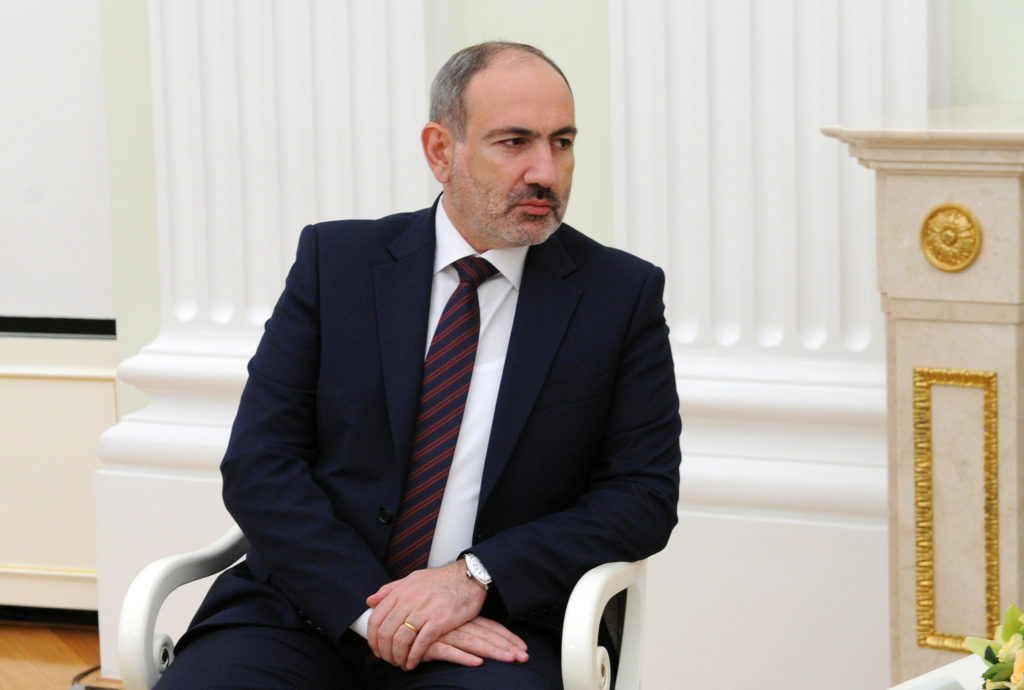YEREVAN
Tiptoeing at gradually reconciling his country with Turkey, the acting Armenian Prime Minister Nikol Pashinyan this week made a little-noticed but profound statement about ties between the long-time bitter enemies.
Pashinyan, a 45-year-old journalist and writer, seems at ease with disposing with the obligatory jargon of past leaders, oblivious to any cost.
He offered, however tentative, probably the most conciliatory remarks in modern history concerning the two nations.
“Turkey is our foe, but also our neighbour,” Pashinyan said in parliament late on Monday.
“Today, only superpowers have foes outside their regions. We say, after all, the time has come to note that this enmity must be managed because when this enmity gets heated it leads to an explosion at some point.”
While on the surface tame-seeming, the comment was nothing short of a watershed as an acknowledgment that Armenia and Turkey must find a way to co-exist, like it or not, more than 100 years of the deadly events of 1915.
U.S. President Biden effectively recognised the death of up to 1.5 million Armenians – the numbers are a matter of great debate – as a genocide in April. Ankara ridiculed the decision, though the terminology was couched in such careful language as to be obvious that Washington was seeking to soften any broadside to a NATO ally.
Present day Turkey and Armenia did not even exist during that period, in the waning days of the Ottoman Empire and the Russian Tsarist Empire.
The modern Republic of Turkey was formed in only late 1923 as a way to break with centuries of religious shadow rule. Its leader, Mustafa Kemal Ataturk, was a strict secularist bent on stamping out obscurantist anti-modernity.
Modern Russia is actually an even more complicated creation. Formally, it came into being during the last days of 1922 as the Union of Soviet Socialist Republics (USSR). That entity dissolved in 1991, and its formal reincarnation – became the now Russian Federation.
AN ARMENIAN PRO-TURK?
Pashinyan said some circles are falsely painting him with the absurdity of being “pro-Turkish”. Some commentators in Ankara did support Pashinyan’s claim that a revolt by some hard-line military officers early this year was an attempted “coup”. But kind words by Ankara are hardly regarded as sweet nothings to most Armenians.
Pashinyan has made no apologies for the “war loss”. Armenian troops had occupied seven Azerbaijani districts since the early 1990s, but they did little except strip the areas of anything of value and there was almost no re-settlement of ethnic Armenians.
He bluntly said that Armenia had no choice but to sign a Russian-brokered peace deal in late 2020 and that his country had no capability of holding on to the occupied territories.
He even attacked detractors as hypocrites, saying that if Armenians really wanted the huge areas, they would have invested in them, and added that many of the complainers, able-bodied men, did not bother to fight in the decisive 44-day culmination to the nearly 30-year war.
HUGE LEAD IN POLLS
For a man accused of losing a historic war, Pashinyan seems remarkably popular. The latest polls for the June 20 snap election show him with a huge lead over all other rivals combined – a cobbled together mixture of mostly ultranationalist figures, or those seen as tools of the Armenian diaspora, chiefly from the U.S.A.
The diaspora has long issued blank checks to nationalist activists and is regarded as a sort of jingoistic cash machine.
Many locals also resent some of them as privileged people with a fantasy-like conception of post-Soviet Armenia. Some resent the often-rich diaspora types havd little understanding of the difficulties of life in Armenia, estimated to have lost about half of its population since “independence” from the Soviet Union in 1991.
Many diaspora figures were among the chief drivers of the movement for the “independence” of Azerbaijan’s Nagorno-Karabakh district, a mountainous, sparsely populated area with an Armenian majority. That flashpoint led to an all-out war between the two countries. The “Karabakh Clan” and diaspora-funded types dominated politics for nearly 30 years in Yerevan, but their latest poll numbers are infinitesimal.
This aligns with the main concerns of many Armenians who say basic bread and butter issues are their main concern, not dreamy musings of old empires.

